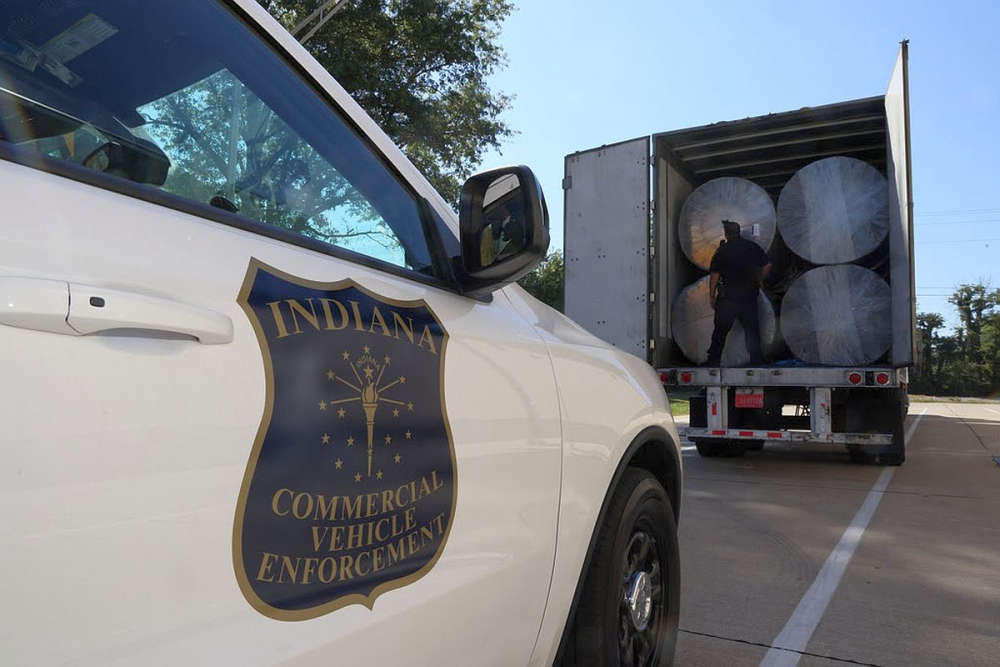
News article provided by Senator Young's office
U.S. Senator Todd Young (R-Ind.) applauded Senate passage of the National Defense Authorization Act (NDAA) for Fiscal Year 2026, which passed the Senate 77-20 last week. The annual defense bill will set policy for the Department of Defense (DoD), establish national security priorities, and give service members a much deserved pay raise.
“The National Defense Authorization Act is one of the most important pieces of legislation Congress considers each year. I’m pleased the Senate-passed bill includes several important priorities I’ve worked on to modernize our defense capabilities, support Indiana’s defense industrial base and workforce, strengthen our critical minerals supply chain, and maintain American leadership in biotech. I look forward to working with the House of Representatives to get this bill across the finish line,” said Senator Young.
Senator Young worked to secure the following provisions in the Senate-passed NDAA:
Support for Indiana’s defense capabilities and technologies:
- $10 million for reusable hypersonic test bed integration and testing for MACH-TB at Naval Surface Warfare Center-Crane Division (NSWC Crane) in southern Indiana.
- $10 million for PELE microreactor production by BWXT, which has a facility in Mount Vernon, and supported by Rolls Royce in Indianapolis. This cutting-edge technology will provide American military bases and installations with resilient, reliable electricity.
- AI Maritime Maneuver (2.0) funding to support Trine University and NSWC Crane’s collaborative development of AI-enabled maritime maneuvering and navigation.
- Anti-Submarine Warfare Equipment funding to protect our Navy as they are on the forefront of securing vital sea lanes, securing commerce, and reducing threats to the homeland from the navies of China and Russia. Sonobuoys, like those manufactured by Ultra Maritime in Columbia City, are a vital tool in detecting and tracking submarine threats from our peer competitors.
- $5 million to support the Defense Innovation Unit OnRamp Hub, led by the Indiana-based Applied Research Institute (ARI), that will accelerate national security innovation and deliver emerging technologies to the DoD. Senator Young supported ARI’s winning application for this Hub project earlier this year.
- $168 million for the procurement of 224 additional Joint Light Tactical Vehicles (JLTVs), which will be built by AM General in Mishawaka.
Critical updates to Indiana’s defense infrastructure:
- $161 million for Crane Army Ammunition Activity to modernize the production of pyrotechnics.
- $55 million to the Indiana Army National Guard in Shelbyville for critical flight facility upgrades.
- $18 million for an F-16 training facility in Fort Wayne.
The AUMF repeal bill, authored by Senators Young and Tim Kaine (D-Va.), to repeal the 1991 and 2002 Authorizations for Use of Military Force (AUMF) against Iraq. The Gulf War started 34 years ago, and the Iraq War began 22 years ago. These conflicts have long ended, and today Iraq is a partner, not an adversary. This legislation, which was included in both the House-version and the Senate-version of the NDAA, would repeal the outdated AUMFs and close the book on these forever wars.
The Finding ORE Act to strengthen U.S. mineral security and reduce strategic vulnerabilities. This legislation would create opportunities for collaboration between the United States and other countries to update geological mapping with the goal of locating critical mineral deposits. These partnerships would be mutually beneficial and provide the United States access to more critical minerals, reducing our dependence on China.
The BIOSECURE Act, legislation to prohibit federal contracting with certain biotechnology providers connected to foreign adversaries. This effort stems in part from Senator Young’s role as chair of the National Security Commission on Emerging Biotechnology (NSCEB). The NDAA also includes 14 other NSCEB recommendations that would spur biotech innovation critical to our national security and defense capabilities and ensure the U.S. maintains global leadership in biotechnology.
Provisions included in the Intelligence Authorization Act to authorize funding, provide legal authorities, and enhance oversight of the U.S. Intelligence Community. The NDAA includes language that would help keep America secure by addressing threats to our defense, industrial, agricultural, and health sectors.


 ISP Commercial Vehicle Enforcement Division Statistics
ISP Commercial Vehicle Enforcement Division Statistics
 IN Reps. Jordan & Teska to appear at Third House Wednesday with Senator Bohacek
IN Reps. Jordan & Teska to appear at Third House Wednesday with Senator Bohacek
 Indiana is Open for Business: February’s Jobs and Wages Wins
Indiana is Open for Business: February’s Jobs and Wages Wins
 NIPSCO offers Winter Bill Support through March 31
NIPSCO offers Winter Bill Support through March 31
 Marshall County man sentenced to 11½ years for firearm possession, drug-related driving
Marshall County man sentenced to 11½ years for firearm possession, drug-related driving
 Two Republican candidates removed from May Primary Ballot over voting requirements
Two Republican candidates removed from May Primary Ballot over voting requirements
 Plymouth School Board meeting Tuesday evening at 6
Plymouth School Board meeting Tuesday evening at 6
 Chicago woman arrested on drug charge after traffic stop
Chicago woman arrested on drug charge after traffic stop




